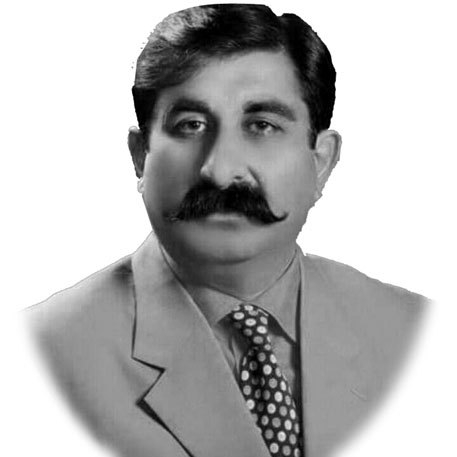Political dynamics of Afghanistan
THE United States of America ultimately negotiated with the Afghan Taliban to whom it waged a war two decades back.
By then, the Taliban were declared terrorists. Now after twenty years long bloody war the same Taliban are acknowledged a big political power of Afghanistan.
Twenty years back, the entire world except Pakistan, Saudi Arabia and the UAE, had been against Afghan Taliban but now when America and NATO forces are leaving Afghanistan the world has started acknowledging the same terrorists as main stakeholders.
In February 2020 agreement with the Taliban, the Donald Trump Administration had committed withdrawal of its/NATO forces by Summer 2021.
in return Taliban committed to prevent other groups, including Al-Qaeda, from using Afghan soil to recruit, train or to raise funds for activities that threaten the United States or its allies.
America contends that the Taliban have not fulfilled their commitments, as violence between the Taliban and Afghan government has intensified and Taliban links with Al-Qaeda remain intact.
The Afghan government representatives were not participants in the US-Taliban talks, leading some observers to
conclude that the United States would prioritize a military withdrawal over securing a political settlement that preserves some of the social, political and humanitarian gains made since 2001.
After months of delay, on 12 September 2020, Afghan government and Taliban representatives met in Doha, Qatar, to begin their first direct peace negotiations toward such a settlement, a significant moment with potentially dramatic implications for the course of the ongoing Afghan conflict.
Talks between the two sides continue but have not made substantial progress and remain complicated by a number of factors.
In the light of the stalling of intra-Afghan talks, the US appears to have intensified its efforts to broker an intra-Afghan agreement.
The United States produced a draft peace agreement to jumpstart negotiations that includes a variety of options, including the establishment of an interim transitional government, which Afghan President Ashraf Ghani has rejected.
The culmination of these efforts was to be a senior-level Afghan conference in Turkey, but the Taliban refused to attend and continue to reject participating in such a meeting.
Observers speculate about what kind of political arrangement, if any, could satisfy both the elected Afghan government and the Taliban, who have not specified in detail their vision for Afghanistan’s future beyond creating an Islamic government.
Afghan officials have sought to downplay the impact of the U.S. military withdrawal on their own forces’ capabilities, but some official US assessments indicate that the withdrawal could lead to Taliban gains on the battlefield.
By many measures, the Taliban are in a stronger position now than at any point since 2001, controlling as much as more than half of the country, though many once-public US government metrics related to the conflict have been classified or are no longer produced.
Future changes in political arrangements and in the security environment may in turn influence US policymakers’ consideration of future levels and conditions of development assistance.
It is unclear to what extent, if at all, the prospect of continued US assistance to Afghanistan which remains one of the world’s poorest countries represents leverage over the Taliban.
Regional dynamics and the involvement of outside powers, always directly affect the conflict in Afghanistan.
The neighbouring state widely considered most important in this regard is Pakistan which has played an active role in Afghan affairs for decades.
Afghan leaders, along with US military commanders, have attributed much of the insurgency and longevity either directly or indirectly to Pakistani support.
Now Pakistan has declared that it will not host US bases after the military withdrawal from Afghanistan.
Absolutely Not. Prior to the current situation of Afghanistan Donald Trump sought Pakistan’s assistance in the US talks with the Taliban after 2018 and US assessment of Taliban’s role have generally been more positive since.
Then the US envoy for Afghanistan Zalmey Khalilzad thanked Pakistan for releasing Mullah Baradar from custody in October 2018 and for facilitating the travel of Taliban figures for talks in Doha.
The US Secretary of Defence Lloyd Austin expressed gratitude to his Pakistani counterpart in March 2021 for Pakistan’s “continued support for the Afghan peace process.”
Pakistan at this stage will like to see a strong, unified and stable Afghan State particularly one led by an ethnic Pashtun-dominated government in Kabul; Pakistan has a large and restive Pashtun minority.
Afghanistan-Pakistan relations are further complicated by the presence of over two million Afghan refugees in Pakistan as well as a long-running and ethnically tinged dispute over their shared 1,600-mile border.
Pakistan’s security establishment, fearful of strategic encirclement by India, apparently continues to view the Afghan Taliban as a relatively friendly in Afghanistan.
India’s diplomatic and commercial presence in Afghanistan and the US rhetorical support for it exacerbates Pakistani fears of encirclement.
India has been the largest regional contributor to Afghan reconstruction, but it has not shown an inclination to pursue a deeper defence relationship with Afghanistan.
India has opened channels of communication with Taliban leaders. Pakistan will have to be vigilant to monitor India’s role in Afghanistan.
Modi has started mesmerising Afghan Taliban leadership against Pakistan. Pakistan should keep itself away from internal matters of Afghanistan.
Pakistan should also maintain bilateral relationship with Afghanistan not with any particular party or group. State to State relationship should be maintained. New political developments in Iran, Afghanistan and India will have direct serious impact on Pakistan.
Hardliners government in Iran, Afghanistan and India will encourage and promote hardliners of Pakistan.
—The writer, based in Islamabad, is book ambassador, columnist and author of several books.










